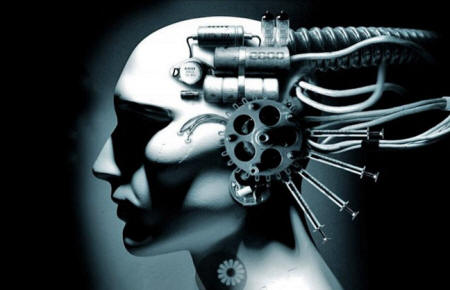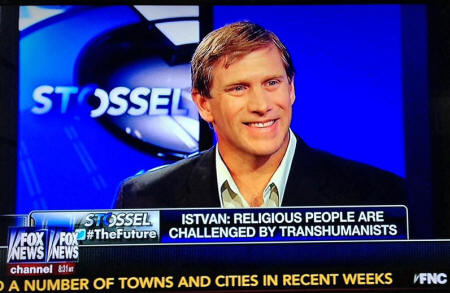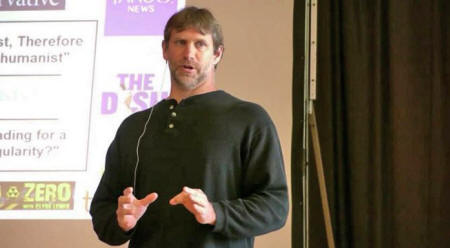Why did you
decide to run for the US presidency?
The most important goal of the Transhumanist Party and my 2016
presidential campaign is to spread awareness of transhumanism
and to address the issue that society will be greatly changed by
radical science and technology in the next 5-15 years.
Most
people are unaware how significant these changes could be.
For
example, we might all be getting brain implants soon, or using
driverless cars, or having personal drones follow us around
and do our shopping for us. Things like anonymity in the social
media age, gender roles, exoskeleton suits for unfit people,
ectogenesis, and the promise of
immersive virtual reality could significantly change the way
society views itself.
Transhumanism seeks to address these
issues with forward-thinking ideas, safeguards, and policies. It
aims to be a bridge to a scientific and tech-dominated future,
regardless what the species may eventually become.
While the Transhumanist Party has almost no
chance of winning this election, its goal is to get on as many
state ballots as possible, so people will see its promise and
recognize what it stands for.
By doing so, we'll let citizens
know an exciting political movement is afoot that focuses on
using technology and science to enhance the human species. And
maybe sometime in the future, many people will want to join it.
Furthermore, I'm hopeful other political parties will take
notice of transhumanism and incorporate its ideas into their own
philosophies.
On a final note, it's my hope that others will
start to run for various political offices, both locally and
nationally, under the Transhumanist Party banner. This way we
can show the country that future politics should be far more
science and technology inspired.
This would be a great step for
the direction of the America.
What can transhumanism
offer to repair the persistent divisions of race, gender,
religion, and culture?
The best thing about being transhuman is what the
word really means: beyond human.
In this way, transhumanism aims to leave behind
the problems and bickering the human race has undergone for
millennia, especially ethnic, racial, gender, and cultural
divisions. The language of transhumanism is science - and that
language and cultural framework is universal.
That's the brilliance of transhumanism. It seeks
not to divide, but to improve the lives of all people.
It doesn't judge one's race, sex, class, culture,
or ethnicity. It transcends them with its scientific aims. For
example, designer babies - a classic transhumanist field - are
literally just years away.
The idea that a child will belong genetically to
one race when that same child has been significantly genetically
modified is no longer valid.
Transhumanism will overcome this
hurdle and many others that have sadly embroiled many countries
and communities into longstanding enmity.
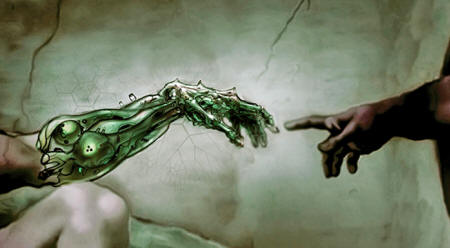
If, as you
observed, "Morality is often defined by the amount of time we
have left," can transhumanists run on a morality platform
without being labeled as some kind of a religion life-extension
as their God?
This is a challenging question.
I admit there are
some aspects of transhumanism that seem almost religious in
nature, such as the idea of
the Singularity or the all-important
goal of trying to
stop biological aging and conquer human death.
But what many people forget is that transhumanism
is also engaged in discussing and exploring the mysteries of the
universe - that many transhumanist scientists are in love with
that mystery. They spend their lives dedicated to unraveling the
puzzles of our existence.
However, transhumanists pursue all this mystery
from the point of view of the Scientific Method, which is a tool
designed to ensure a healthy amount of skepticism to all
endeavors.
That is the critical difference between
transhumanists and many fundamentalist religious people; it's
the difference between transhumanism and religion.
We are encouraged to question and ask "why?" in
our pursuit to make a better life for ourselves. We are
encouraged to find the best path forward, regardless of
preconceived notions or historical precedent. There are no
guarantees except that which we create for ourselves.
Transhumanists are techno-optimistic people who
believe they have the power and the universal right to improve
their lives.
Some will say this type of attitude is religious or
spiritual in nature, and maybe it is from a certain point of
view. But mostly it's just a healthy scientific attitude about
creating the best life for oneself, one's loved ones, and one's
planet.
The fact that
the deaf can hear via transhumanist implants, war amputees
now have feeling robotic limbs, and the paralyzed can walk via
exoskeleton technology reminds
religious people of their own
texts of faith and its parables.
I find this a good thing, and
hope that religious people may come to embrace transhumanism due
to some of the similarities.
While I remain an atheist, I see no reason that
religions can't eventually see many of their hopes and ideas
fulfilled via the promise of transhumanism.
While the
hope exists that improved societies promptly lead to improved
individuals, historically it has always been the richest and
most powerful people who - often exclusively - received the
improvements. How might transhumanism best proceed in the
current political climate to rectify our near universal dreams
for equality and opportunity and universal improvements to the
human condition?
The history of scientific and technological
advancement - which is really the history of transhumanism - has
always pushed our species forward in a positive way.
Transhumanism has made all people live longer,
better, and with more opportunity. A recent report out of
the
United Nations says the
poverty level around the world is
the
lowest it's ever been. This is largely due to science and
technology.
While it's true that a small minority - often
the
so-called elite - are usually first to get new technologies and
advancements, those products have a long history of trickling
down to all levels of society.
That's why you can find cellphones in mud hut
villages in some of the poorest parts of Africa. And now those
villages can communicate with family members far away or call a
doctor to come visit a sick person.
Such advancement is truly wonderful.
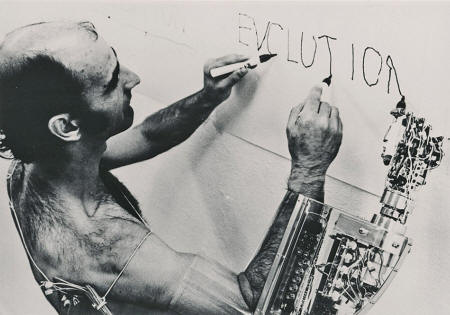
The world is evolving positively due to transhumanism tech and science.
I believe it will continue to evolve into a place
where living standards and the happiness of all people sharply
rise as a result. In the future, I think there will be more
interconnectedness than ever before. While I'm a big fan of the
individual and their rights, such interconnectedness due to a
digital culture will bring us all closer, possibly in ways we
couldn't imagine.
Eventually, advancements in technology - such as
widespread
chip implants, virtual currencies, and
brain wave reading
devices (which already exist) - will force issues of
equality and universality across all communities and borders.
Globalization will not just be a slow jog, but become a full
sprint.
In the future, it may not be about the individual
versus the collective, but about how much one wants to
participate in a thriving global digital community versus not
participating. Everyone will have the chance to engage and
participate if they want.
Virtual worlds, free online education, and 24/7
social media usage will become the playgrounds of society and
social interaction. Such a life may seem strange to many people
- especially older, more conservative people - but observe how
the youth have already taken to such things.
They are our future, and they are already leading
the way, delving further into transhumanist perspectives as each
year passes.


